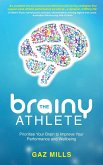However, some sports organizations view mystical practices negatively, conflicting with their values of fair play and neutrality toward players' personal beliefs. Despite this challenge, there is an optimistic perspective.
The book caters to sports science students, offering a comprehensive resource covering key concepts, theories, and practical applications in sports psychology. It goes beyond conventional classroom use, serving as a foundational text for online resources, multimedia content, or interactive exercises, enhancing the overall learning experience.
"Sports Psychology and Performance in Africa" explores the hidden aspects of sports, exploring its connections with violence, media, racism, doping, studies, and religion. This approach reflects a coherent educational strategy.
The book takes a critical stance on sports psychology within the broader African context. It analyzes the legitimization of psychosociological and magico-religious practices in modern sports at the expense of sports psychology. The latter, being relatively new in Africa, faces obstacles such as limited acceptance by athletes and sports organizations.
African athletes may prioritize physical over mental aspects of training due to a lack of awareness or education regarding sports psychology's benefits. Additionally, limited financial and human resources hinder the discipline's development in Africa.
While sports organizations in Africa consider mystical practices effective for influencing performance, some view them negatively, conflicting with professional values of fair play and neutrality.
The book's second aim is to unveil contradictions and hidden interests in societal and organizational discourses on sports. It explores the dual nature of sports, where some emphasize its values, while others see it as a reflection of a society influenced by politics, religion, racism, media, and violence.
In short, the book navigates the intricate relationship between sports psychology and mystical practices in Africa, addressing challenges, providing educational resources, and critically analyzing the broader societal and organizational dynamics of sports.
Dieser Download kann aus rechtlichen Gründen nur mit Rechnungsadresse in A, B, CY, CZ, D, DK, EW, E, FIN, F, GR, H, IRL, I, LT, L, LR, M, NL, PL, P, R, S, SLO, SK ausgeliefert werden.









